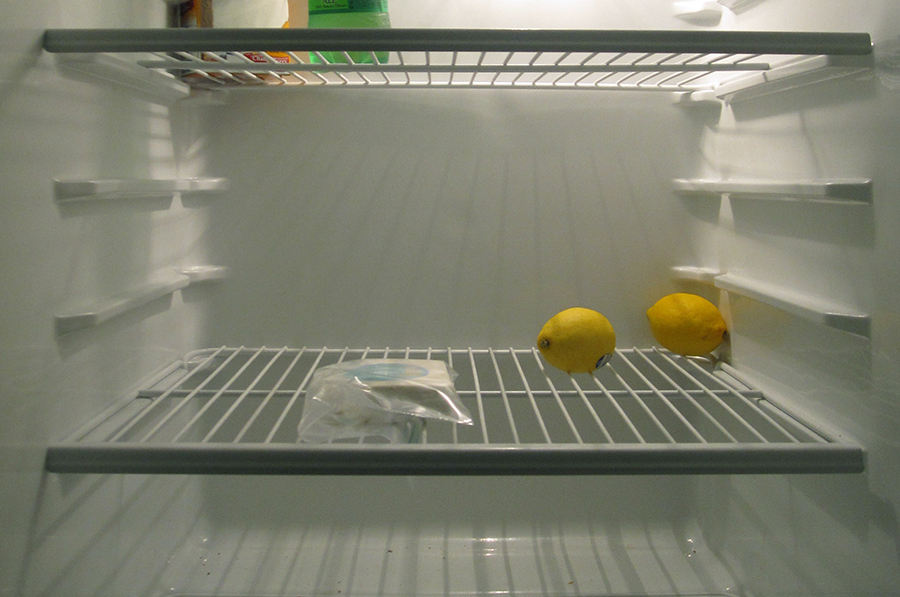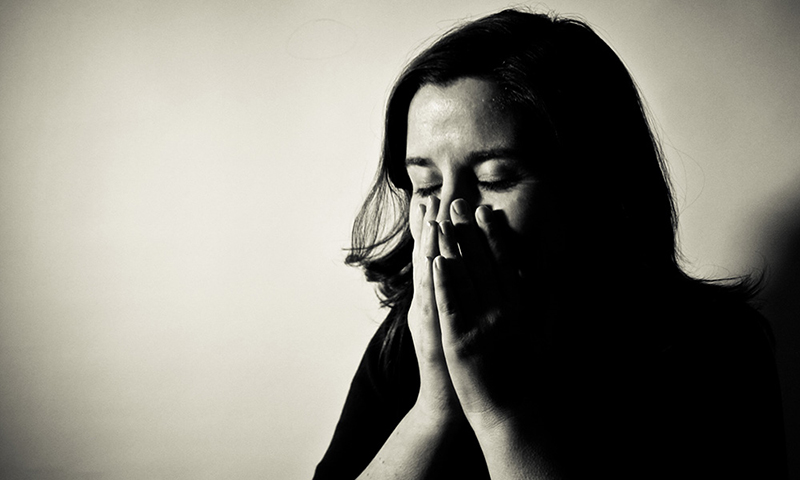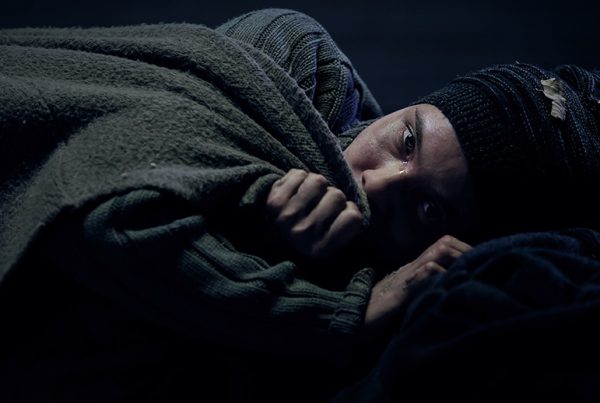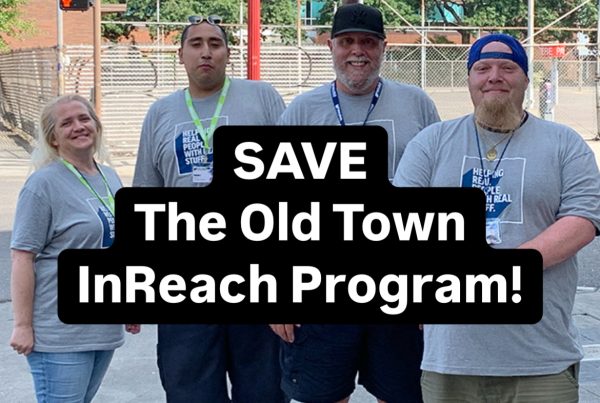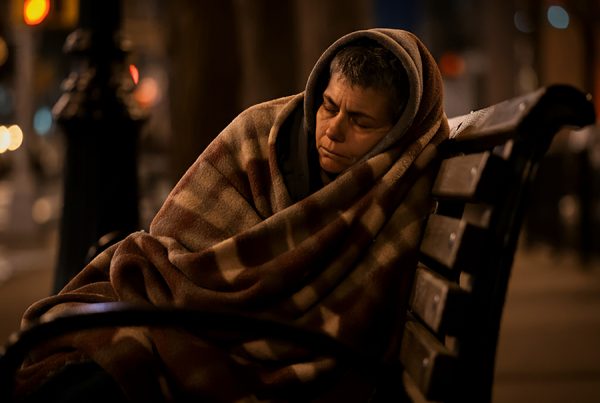A multitude of insecurities–housing, hunger, and income insecurity for example–can affect a person’s ability to access the most basic of human needs.
Hunger Action Month sharpens our focus on hunger insecurity and the ways we can help those who don’t have enough food. It’s also a time to shine a light on pressures that cause hunger insecurity so we have a complete picture of what it will take to eliminate hunger in our communities. By pressures, I’m referring to the multitude of insecurities caused by inadequate income.
Generally, there are two types of basic need insecurity a person may face.
- A complete lack of access to food, housing, or healthcare.
- Being one crisis away from losing access to food, housing, or healthcare due to a missed paycheck, unexpected bill, or medical issue. This could include someone who has physical or mental health challenges that continually pressure their situation.
People experiencing both types of insecurity need support from social services and the community during their time of uncertainty. To help grow compassion and understanding, I offer the following glossary to explain the major kinds of insecurity people may experience.
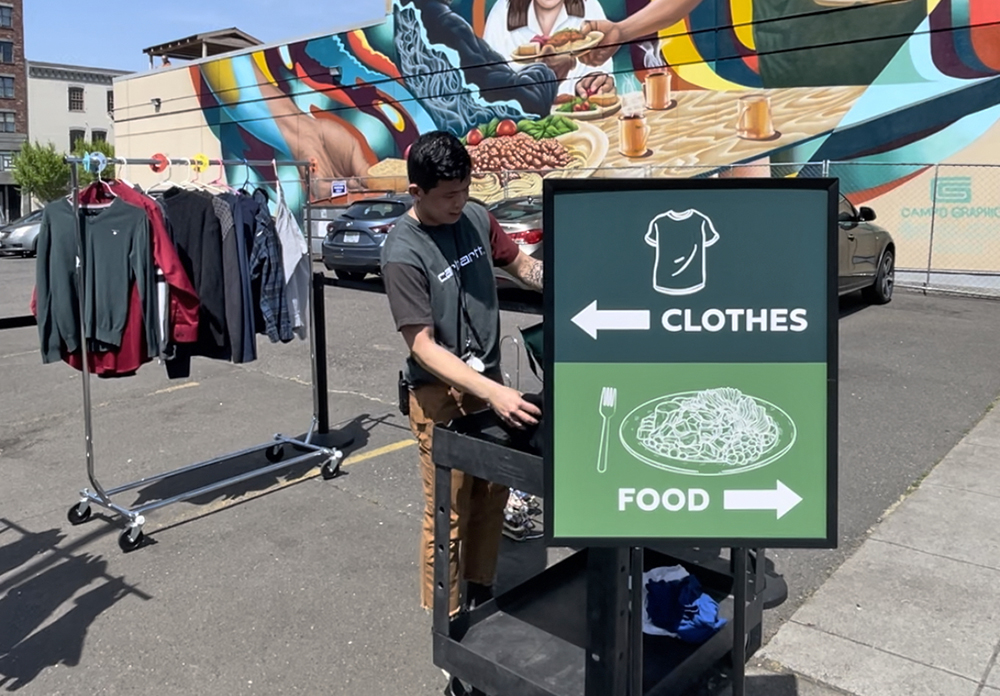
Staff offer clothing in the parking lot outside Blanchet House while food is served inside the cafe.
Income Insecurity
We must start here because poverty is at the heart of all types of basic needs insecurities. Income insecurity frequently goes hand-in-hand with employment insecurity, which comes in many forms. Such as the difficulty getting and then keeping a good-paying job, let alone one with benefits or decent and dependable hours.
When it comes to keeping a job that can pay your expenses, a person’s competence as an employee often isn’t the issue.
Employment Insecurity
Challenges that cause employment insecurity include:
- Transportation
- Childcare
- Family responsibilities
- Health
- Multiple jobs
- Harassment or intimidation at work
- Exploitative, unsafe, and illegal practices or conditions
Inequitable Access to Public Assistance
Income insecurity also occurs due to inadequacies or unfairness in our public assistance and welfare systems. A large percentage of people don’t receive the benefits they are legally entitled to receive. This is often due to a variety of factors that make it harder to access or continue to receive assistance. It can be so time-consuming for some people to get and maintain benefits that little time is left in their week to search for employment.
Housing Insecurity
The most obvious form of housing insecurity is the inability to pay rent, either because of a rent increase or loss of income. But there’s so much more to housing insecurity than that.
Other forms of housing insecurity include:
- Being a house guest, sometimes referred to as couch-surfing.
- Sharing a crowded home with multiple people or families.
- Rent shares make a person dependent on the ability of a roommate to pay rent.
- Predatory and threatening landlord or management.
- Unsafe environments:
- Domestic abuse
- High crime
- Disrepair
- Pest infestation
- Insufficient heating or cooling
Food and Hunger Insecurity
Being impoverished often means living with hunger. Food benefits such as food stamps or SNAP don’t always solve this. Accessing healthy food is much harder when you are poor.
Food insecurity also gives rise to other types of insecurity because people must choose how best to stretch a dollar. Clothing, car repair, gas, medical care, laundry, or even just the electric bill may have to take a backseat to feeding oneself or their family.
Food Deserts
People living in impoverished communities often live in “food deserts” which are areas that lack grocery stores that sell fresh fruits, vegetables, and healthy foods.
SNAP Restrictions
In Oregon, people can’t use SNAP benefits to purchase freshly-prepared hot meals. This is why soup kitchens like Blanchet House’s free cafe are needed for people living in low-income housing or temporary shelters, or who have disabilities that make cooking difficult.
Healthcare Insecurity
Perhaps it’s self-evident that not having reliable access to healthcare significantly affects a person’s ability to be secure in so many other things in life. You can’t talk about healthcare insecurity without discussing the costs and insurance. The stark truth is many people are one big medical bill away from ruin.
Lack of access to healthcare can lead to:
- Loss of employment for people caring for ill or aging family members.
- Untreated mental health, chronic illnesses, and physical disabilities cause housing, food, and other insecurities.
- Aging without care can lead to worsening health and preventable illness. Persons living in poverty age faster, which means chronic and debilitating conditions, including dementia and Alzheimer’s, can occur earlier and progress faster than in other communities, further straining our health care and housing services.
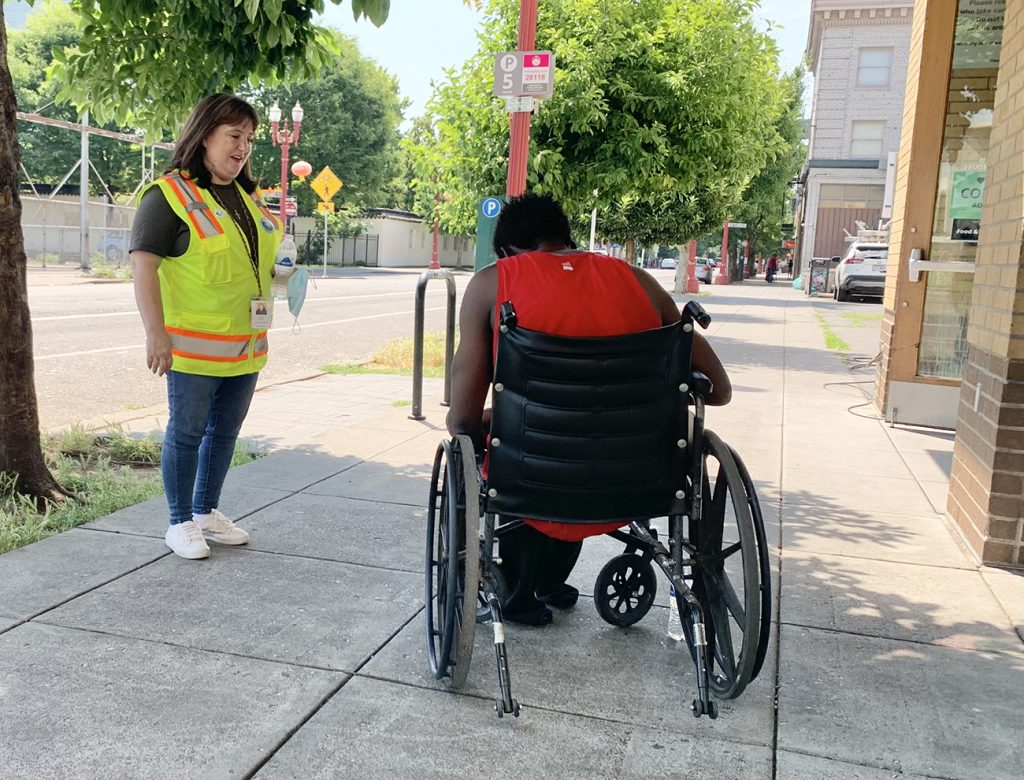
Peer Support Specialist talks with a person experiencing homelessness in Portland.
Community Insecurity
Community insecurity is a consistent lack of access to human interaction that a person needs to live a healthy life. Loneliness and social isolation negatively affect our physical and mental health which is why regular access to a community is critical.
A person can experience community insecurity when they are living on the margins of our cities due to mental health, physical disabilities, drug addiction, or poverty. It can be thought of also as a lack of access to more privileged members of our communities. This type of community insecurity is often experienced by groups plagued by transgenerational poverty, racism, or discrimination. The thing is, when you’re really poor, then likely everyone around you and everyone you know is also really poor.
So where do you turn for help when you really need it like a ride to work or a loan for rent? For many people, the road to rock bottom is very short because there aren’t many people who are able to catch you on the way down. There also are fewer opportunities to get a leg up. From the start of life, poverty can create disadvantages that are extremely difficult to overcome.
Time Insecurity
Being poor, living in poor communities, and having inconsistent access to basic needs creates an insecurity of time. Annie Lowery of The Atlantic explains that when you’re poor you are charged a “time tax.” Simply put, it just takes a lot longer to do things when you’re poor. For example, relying on public transportation can add time to ordinary chores like shopping, commuting to work, or medical appointments.
When you are income insecure it’s likely that you’re time insecure too because lines and wait times are longer for low-income healthcare providers and services. Whereas people who aren’t income insecure can get multiple chores and appointments done more efficiently. A person who needs more time off work to manage personal responsibilities may strain the security of their employment.
Time is also needed to put yourself in a position to escape income insecurity. You need time to look for and apply for employment, find daycare or school, and housing. If you’re homeless, and you don’t know where you’re going to sleep or eat from day to day, then you are even less likely to have time to look for a job.
Ever watch a reality show like Survivor, where people are out in the wild? Their time each day is spent making sure they have food, water, and shelter. That’s what it’s like for people who are housing and food insecure. Every day is an episode of Survivor, except without the grand prize at the end.
Bandwidth Insecurity
This kind of insecurity may be unfamiliar to you. It refers to the cognitive impact of living with stress and anxiety all the time because of poverty. It affects a person’s brain in ways that challenge their ability to make decisions and see the bigger picture.
“When you’re bandwidth-poor, you’re thinking about how to pay for food and make rent today — and it’s almost impossible to think about the future,” NPR’s Laura Starecheski reported.
It’s not easy being poor, and this affects a person’s energy or mental capacity required to deal with a situation. Poverty assistance involves a lot of complicated forms, deadlines to remember, complex criteria to document and satisfy, and requirements that change frequently and with little notice or support. There simply are a lot of roadblocks and a thousand points of “no” in the way of getting help and services.
It takes a lot of mental and emotional energy to persevere when you’re poor, and often what people really need is an advocate with the bandwidth and confidence to help get things done in the face of so much resistance and bureaucracy.
Lifespan Insecurity
The bleak truth is that very poor people live shorter lives. Tragically, it’s sometimes due to having to live in unsafe environments. But lifespan insecurity is also due to natural causes that impact poor people differently than others. A lack of access to healthy housing and food, and sufficient healthcare takes a heavy physical toll on people. We see this at Blanchet House when previous residents of our shelter programs, succumb too soon to the damage a lifetime of hard living does to a person. Years of untreated or poorly managed high blood pressure, diabetes, heart disease, respiratory disease, and other ailments can cause an early death.
The Challenge of Multiple Insecurities
People experiencing poverty rarely experience just one type of insecurity. One insecurity leads to another and then another, compounding to oppress a person’s ability to thrive. This is why it’s difficult to address only one insecurity at a time. For example, providing a home to a housing-insecure person won’t likely solve all their problems. A support structure that addresses multiple challenges to a person’s housing stability needs to be put in place.
Long-term transitional supported housing, often called bridge or interim housing, can better help people address their insecurities. At Blanchet House, a nine-month program provides residents with a safe place to stay, eat, bathe, do laundry, and access physical and mental healthcare all while supported by peers. This type of transitional housing removes insecurities, so they can focus on overcoming complex obstacles and roadblocks. It takes time and support to achieve things like getting a GED and finding employment or housing with a less-than-perfect record.
And most importantly, residents receive the gift of time. Because no one can overcome a lifetime of neglect, abuse, or lack in a month or even three months. It takes time to build new habits, skills, and connections that will help them stay successful, employed, and housed.














